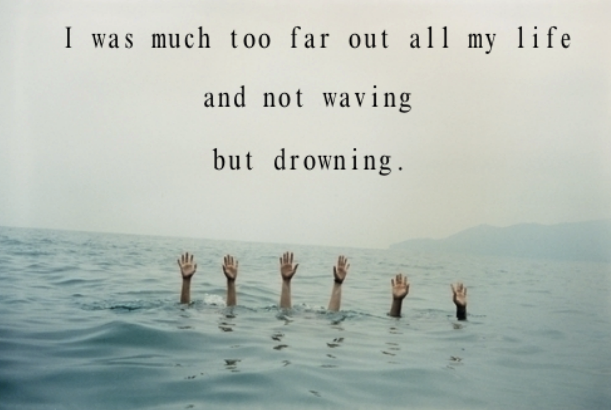WAVING NOT DROWNING?
I have observed a strange error within the resilience section of my talk. The message I normally propagate is DON’T PANIC, KEEP SWIMMING. Well, having recently been caught in a rip current whilst swimming in Greece, I now realise that in this particular situation you certainly don’t want to panic and the worst thing you can do is to keep swimming against the current.
Although it may seem to be going against your instincts, the very best advice is to go allow yourself to float on your back and float to some form of safety. Cease struggling, go with the flow and ask for help. Often this is the case with mental health. You have to stop battling and trying to swim and instead, surrender and ask for help, not worry about what other people think. None of us like the idea of drowning none of us like the idea of getting into difficulties in the water. Yet how many of us would actually ask for help? How many of us would prefer to try to fight the battle ourselves and not attract attention? That is until it is nearly too late.
Being too embarrassed to shout for help whilst swimming can cost people their lives. Being too embarrassed or ashamed to ask for help whilst struggling with mental health can also cost people their lives.
*This often-used expression is taken from a poem by Stevie Smith, published in 1957. For those interested in great writing, this is a superb poem about the human condition and a farsighted comment on mental health.
https://www.poetryfoundation.org/poems/46479/not-waving-but-drowning
Here is a link to the practical advice if you ever do get caught in a rip current:


Comments are closed.